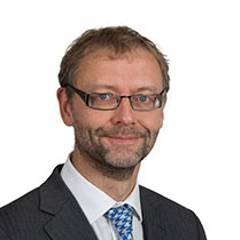05/03/2015
The use of cameras and other recording devices in care settings has been highly controversial attracting considerable media interest and debate.
The Care Quality Commission (CQC) have now published guidance (link below) intended to assist and offer guidance for those who are thinking about using a hidden camera or other recording equipment to monitor someone's care.
CQC Guidance Using hidden cameras to monitor care
CQC emphasise that any evidence obtained in this way can be shared with them anonymously. Although before you think about using such devices to think about the impact it will have. It is a big step for people and families to make. Although it might set your mind at ease about any concerns that you have, it may also intrude on a person's privacy and dignity.
If you have any concerns about the care being given, CQC encourage you to raise these concerns with the care service first and/or the local authority if they are funding the care.
If the care service is informed about cameras being installed into a service users room because of a fear of neglect, the care service must investigate these concerns. Most care providers adhere to high standards and usually have an effective complaints procedure in place. If the response you receive is still unsatisfactory and you feel urgent action is required, it is usually best to speak with the local authority safeguarding team rather than arrange secret filming.
Consent must be obtained from the person whose care you are concerned about.
If the service user is unable to provide consent (dementia etc.) then a decision must be made that you are acting in the best interests of the person concerned.
You must check the contract of service with the care provider as use of such equipment could result in a breach of contract.
CQC advise that if you discover poor care or abuse and you do not want to share it with the service, to inform them, and they will then take action. The guidance details the actions it will take on receipt of evidence.
The Care Quality Commission has warned people of the potential legal dangers and privacy issues of secret filming.
The advice urges people to:
- Make sure that the equipment is set up in a way that avoids recording shared areas of the care service outside of your loved one’s private room.
- Make sure that the equipment, and any recordings made, are only used for the purpose of monitoring and protecting your loved one’s welfare.
- Do not use the equipment indefinitely.
- Think carefully about who may be recorded and the effect on others who use the service, staff, families and visiting professionals
- Keep recordings secure and make sure that they are not tampered with or shared with anyone who does not have a good reason to see them.
Andrea Sutcliffe, the chief inspector of social care for CQC said:
"We all want people using health and social care services to receive safe, effective, high quality and compassionate care. For some, cameras or other forms of surveillance, whether openly used by services or hidden by families, are the answer. Others feel this is an invasion of people's privacy and dignity. Many don't know what to do if they are concerned.
Today’s information for the public explains what people can do if they are worried about someone’s care and the things they need to think about if they are considering using any form of recording equipment.
I hope that this information helps the public to make the right decisions for them. But what I want more than anything is for services to always provide care that meets the standards we all expect so that the public can have confidence.
CQC will continue to hold providers to account and take action when necessary to make sure that happens.”
The use of recording equipment in care settings is seen as controversial and to be used if all other alternatives have been exhausted. Although CQC do not discourage the use of such equipment they advise caution on the reasons and extent it should be used. We shall have to wait and see the likely legal impact the use of such devices will have in the Care Sector.



